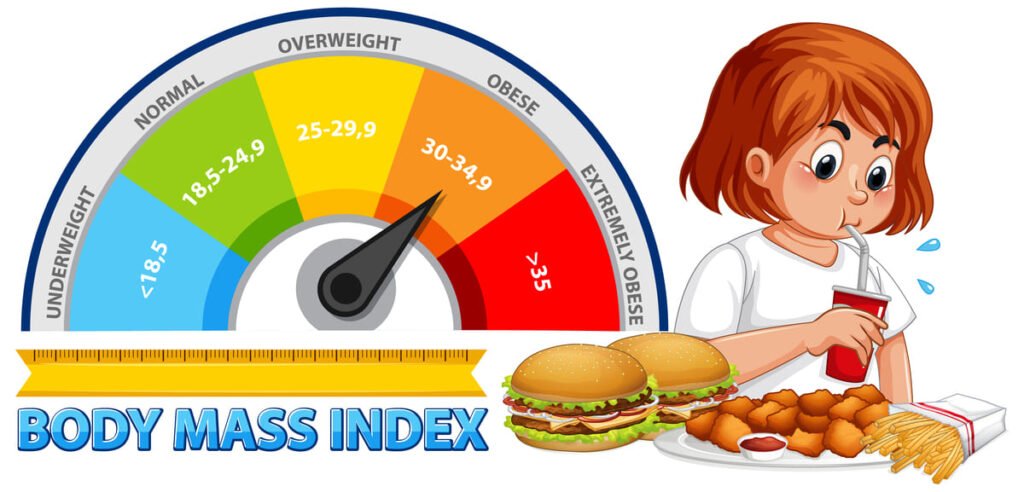
A BMI body mass index is a powerful indicator—not just a number. It provides a snapshot of your weight relative to your height, and it can reveal hidden health risks or opportunities for improvement.
 What Is BMI and Why Should You Pay Attention to It?
What Is BMI and Why Should You Pay Attention to It?
The BMI Body Mass Index is more than just a number. It’s one of the most widely used tools globally to assess your weight in relation to height and estimate your risk of developing conditions such as diabetes, hypertension, and cardiovascular disease.
In a world where mirrors and scales can deceive, BMI offers an objective and quick measurement to understand your current health situation. Are you within a healthy range, or is your body sending unrecognized warning signals?
Starting at age 44, your energy, metabolism, and overall well-being may be silently declining. Don’t wait for symptoms.
 How Is BMI Calculated?
How Is BMI Calculated?
Easy. You only need two pieces of information: your weight in kilograms and your height in meters.
Example:
If you weigh 80 kg and are 1.70 m tall:
This indicates that you are overweight according to the chart shown below, which may be silently increasing your risk of metabolic or cardiovascular disease.
 WHO Classification of BMI
WHO Classification of BMI
| Category | BMI (kg/m²) |
|---|---|
| Underweight | Less than 18.5 |
| Normal weight | 18.5 – 24.9 |
| Overweight | 25.0 – 29.9 |
| Obesity Class I | 30.0 – 34.9 |
| Obesity Class II | 35.0 – 39.9 |
| Obesity Class III (Morbid) | 40.0 or more |
 What BMI Doesn’t Tell You (and Why It’s Not Enough Alone)
What BMI Doesn’t Tell You (and Why It’s Not Enough Alone)
Though useful, BMI does not differentiate between muscle and fat mass. Athletes with high muscle mass might have a high BMI but low body fat, while someone with a “normal” BMI could still have excessive visceral fat (the most dangerous type).
 What Is BMI Good For?
What Is BMI Good For?
-
Detect early signs of metabolic or nutritional risk.
-
Serve as a starting point for designing a personalized health plan.
-
Help track the impact of lifestyle habits over time.
-
And above all, raise awareness: your body communicates, and this number could be one of its earliest warnings.
 What Should You Do Based on Your BMI?
What Should You Do Based on Your BMI?
-
Calculate your BMI.
-
Interpret it thoughtfully.
-
Use it as a guide, not a final judgement.
-
Seek medical advice if you fall outside healthy ranges or have concerns about your body composition.
 BMI as the Smart Starting Point
BMI as the Smart Starting Point
Your health is not defined by kilograms or centimeters alone, but BMI can serve as your body’s first honest mirror. Look at it with awareness. Use it with intention.
Discover More of Technology Splendor: Explore Our Other Sites
Build Wealth Through Online Business
Online businesses are the smartest way to achieve financial freedom, take care of your health, and spend time with your loved ones. Discover the knowledge and tools to achieve true financial success online.
Start Your Online Business Now!Relationships Give Life Meaning
Health gives you energy. Wealth gives you freedom. But only deep, authentic relationships give life true purpose. Discover the tools to connect, love, and communicate at your best.
Improve your Personal and Business Relationships
